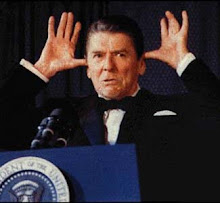
I simply couldn't resist stealing this from Center Field... It's against my nature to rub someone's nose in it, however I can't resist a cheap shot to Yankees fans... (Knowing they'd take their turns in spades given half a chance).
A spot for idle thoughts and ramblings both political and social. Oh, and invective. Lots of invective.



With these latest events, the end has arrived for the legions of the American left wing that have argued relentlessly for more than half a century that the Rosenbergs were victims, framed by a hostile, fear-mongering U.S. government. Since the couple's trial, the left has portrayed them as martyrs for civil liberties, righteous dissenters whose chief crime was to express their constitutionally protected political beliefs.

In 1951, Morton Sobell was tried and convicted with Julius and Ethel Rosenberg on espionage charges. He served more than 18 years in Alcatraz and other federal prisons, traveled to Cuba and Vietnam after his release in 1969 and became an advocate for progressive causes.
Through it all, he maintained his innocence.
But on Thursday, Mr. Sobell, 91, dramatically reversed himself, shedding new light on a case that still fans smoldering political passions. In an interview, he admitted for the first time that he had been a Soviet spy.
And he implicated his fellow defendant Julius Rosenberg, in a conspiracy that delivered to the Soviets classified military and industrial information and what the American government described as the secret to the atomic bomb.
The Rosenbergs’ younger son, Robert Meeropol, described Mr. Sobell’s confession Thursday as “powerful,” but said he wanted to hear it firsthand. “I’ve always said that was a possibility,” Mr. Meeropol said, referring to the question of his father’s guilt. “This is certainly evidence that would corroborate that possibility as a reality.”
In the interview, Mr. Sobell drew a distinction between atomic espionage and the details of radar and artillery devices that he said he stole for the Russians. “What I did was simply defensive, an aircraft gun,” he said. “This was defensive. You cannot plead that what you did was only defensive stuff, but there’s a big difference between giving that and stuff that could be used to attack our country.”
(One device mentioned specifically by Mr. Sobell, however, the SCR 584 radar, is believed by military experts to have been used against American aircraft in Korea and Vietnam.)
Robert Meeropol, the Rosenbergs’ son, said that even if he were to accept Mr. Sobell’s verdict, “It’s not the end of what happened to my mother and it’s not the end of understanding what happened to due process.”
In August 1995, Mumia came within ten days of being executed by lethal injection. He is seeking a new trial. Robert Meeropol, the younger son of Julius and Ethel Rosenberg, says: "Mumia is the first political prisoner in the U.S. to face execution since my parents."
McCain gets emotional at the mention of military families needing food stamps or veterans lacking health care. The outrage comes from inside: McCain’s severe war injuries prevent him from combing his hair, typing on a keyboard, or tying his shoes. Friends marvel at McCain’s encyclopedic knowledge of sports. He’s an avid fan - Ted Williams is his hero - but he can’t raise his arm above his shoulder to throw a baseball.
Let's just list this for a second. John McCain says he's about change, too. Except -- and so I guess his whole angle is, "Watch out, George Bush, except for economic policy, health-care policy, tax policy, education policy, foreign policy, and Karl Rove-style politics. We're really gonna shake things up in Washington." That's not change. That's just calling some -- the same thing, something different. But you know, you can -- you know, you can put lipstick on a pig; it's still a pig.

The law gives distributors 60 days to negotiate the sale of their businesses to the government or face expropriation. It also forces distributors to sell storage tanks and gasoline pumps to Petróleos de Venezuela and to relinquish their brand names.
Congressman Luis Tascón, a former Chávez ally, said the pending legislation could cause shortages at gas stations because the government is not prepared to take full control over distribution.
The Chávez government has never raised gasoline prices and Chávez has ruled out any increase in the fixed pump price of around 12 U.S. cents per gallon, the cheapest in the world. Wholesale fuel distribution in Venezuela generally offers limited profitability because of the combination of fixed prices and high inflation.
"I'm warning the population that if this law is approved, we are going to see shortages in the short term," said Tascón, one of a handful of lawmakers who voted against the bill.
We are all becoming heavier and it is a global responsibility, Edwards said. Obesity is a key part of the big picture.


